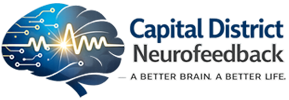My wife and I are both therapists, but therapy doesn’t cure ADHD.
Andy showed early signs of language delays and impulsivity, leading to an ADHD diagnosis. His parents, both psychologists, provided structured support, but after a hospitalization, his anxiety worsened, and he developed tics. Then, after two head injuries, he regressed severely – his impulsivity, emotional intensity, and obsessive behaviors surged. “It was as if everything we worked towards was just erased.”
Seeking a sustainable solution, his parents turned to neurofeedback. Over time, they saw clear changes. “A change in impulsivity, a decrease in tics, a decrease in anxiety, a decrease in labile mood.” His meltdowns, once lasting 20 minutes, now resolve in moments. Even Andy recognizes the benefits.
For his father, the transformation was undeniable. “There’s no way the improvements and changes can be explained other than the neurofeedback training.” Now, Andy is thriving, and his parents encourage others: “Trust the process. We’ve got the data telling us something good is happening.”


